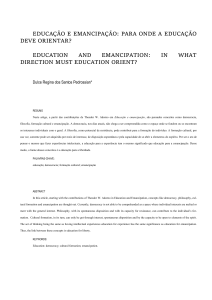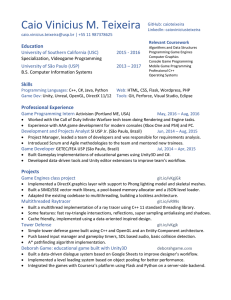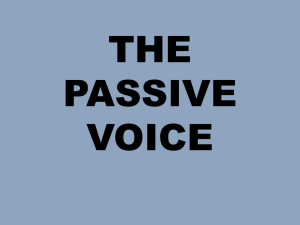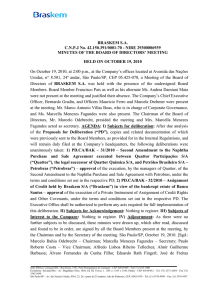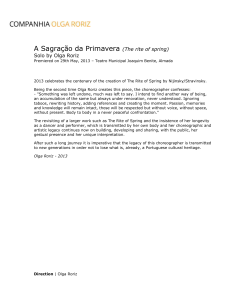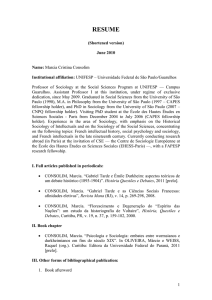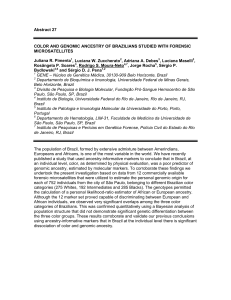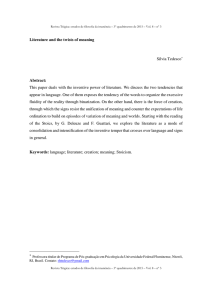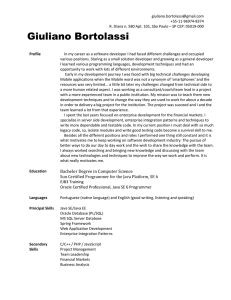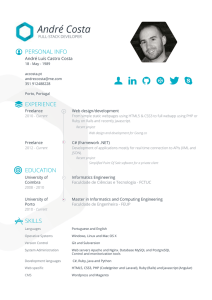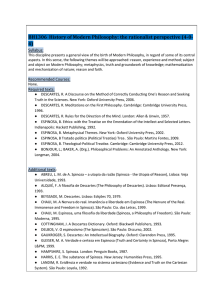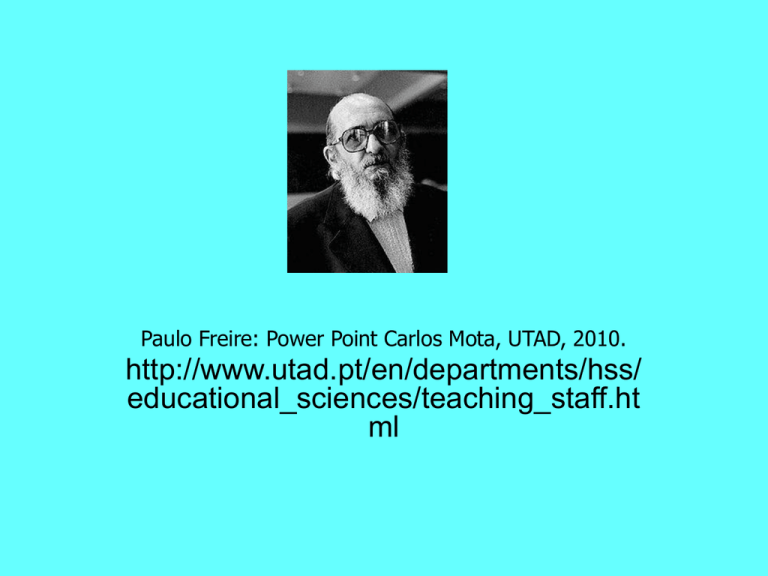
Paulo Freire: Power Point Carlos Mota, UTAD, 2010.
http://www.utad.pt/en/departments/hss/
educational_sciences/teaching_staff.ht
ml
Paulo Reglus Neves Freire (1921-1997)
was a Brazilian educator born in Recife.
• He
graduated
in
law,
which
he
practice.
From 1941 to 1947 he was teacher of Portuguese.
In 1959 he received his doctorate in Philosophy and
History of Education. He was PhD of Philosophy and
History of Education in 1961 at the University of Recife.
He participated in an adult literacy campaign in the state
of Rio Grande do Norte, neighboring Brazilian state
(north) of Pernambuco (whose capital is the
aforementioned city of Recife). President João Goulart
appointed him in 1963, Chairman for the Popular
Culture. With the military coup in 1964, he was jailed for
about two months and exiled for fifteen years. During this
period, he lived in Chile, going to Harvard in 1969 and
then to Geneva for ten years.
• He visited several African countries,
especially the former Portuguese colonies,
such
as
Guinea-Bissau,
Angola,
Mozambique and São Tome and Príncipe.
Back in Brazil, he taught at the University
of São Paulo, and he was Secretary of
Education of the city, elected by the
Workers' Party. (PT, “Partido dos
Trabalhadores”)
• In the book Pedagogy of the
Oppressed, he argued that
education is sexist, racist and
favors the powerful.
He developed a teaching method
based in learning words that are
already known by the student,
and divided into syllables that can
be recombined, resulting in the
writing of new words.
• For Paulo Freire, educating is liberating
since the subject of education is the
oppressed people, and it’s purpose is the
people's liberation. Education is a political
action.
Paulo Freire rejects the liberal capitalism.
• His theoretical work has taken over the
idea of transformation of social reality from
the educational activity, which is somehow
a "return to Rousseau," in the late
twentieth century. In fact, his pedagogy is
considered "utopian and hopeful" by Maria
Gabriela Bacelar.
According to that author, Paulo Freire proposes a
pedagogy of liberation and transformation [that]
• must be utopian and hopeful and, futureoriented, built from dreams and faithful to
the historical commitment requiring the
criticism of the existing society and the will
of
a
future
better
society."[1]
•
[1]BACELAR, Maria Gabriela, "Violência e Educação, 7.
Paulo Freire - Uma Pedagogia Utópica e Esperançosa", p.
123, artigo in Carvalho, Adalberto Dias de, (org.)
Filosofia
da
Educação:
Temas
e
Problemas,
Afrontamento, Porto, 2001.
In his pedagogy Freire asserts the
importance of otherness,
• "Since, in addition to recognizing the crucial role
of intersubjectivity for the constitution of
consciousness, the world and a project, and
even to produce a more secure, aware and
critical of the fact, he insists, especially in
absolute value than the other should represent
for the teacher, saying, therefore, the profound
respect that it deserves."[2]
• [2]BACELAR, Maria Gabriela, "Violência e Educação, 7. Paulo Freire Uma Pedagogia Utópica e Esperançosa", p. 123, artigo in Carvalho,
Adalberto Dias de, (org.) Filosofia da Educação: Temas e Problemas,
Afrontamento, Porto, 2001.
Paulo Freire believes that education can improve conditions of
mankind. For Maria Gabriela Bacelar, The bases of its
pedagogical project call, fall in Philosophical Pedagogy as this
is established by Adalberto Carvalho.
• In this line of thought are the words
of Paulo Freire:
• "The invention involves the existence,
repeat itself, necessarily, the language,
culture and communication at deeper
levels and complex than what occurred
and occurs in the field of life,
spiritualization the world the opportunity to
beautify as “uglify” the world and all that
inscribe women and men as ethical
beings. " [3]
• [3]FREIRE, Paulo, Pedagogia da Autonomia, 15ª
Ed., Paz e Terra, S. Paulo, Rio de Janeiro, 2000,
p. 57.
Ethical concerns of Paulo Freire are also visible in the aforementioned
work Pedagogy of the Oppressed, perhaps the most famous of all who
wrote.
• "The violence of the oppressors, who is also
dehumanized, it introduces another vocation that of being less. How to be more distorted, the
less takes the oppressed, sooner or later, the
fight against those who made less. And this fight
only makes sense when the oppressed, seek to
regain his humanity, which is a way to create it,
do not feel idealistically oppressors, or become,
indeed, oppressive of the oppressors, but
restorers
of
humanity
in
both."
[4]
• [4] FREIRE, Paulo, Pedagogia do Oprimido, 29ª Ed., Paz e Terra, S.
Paulo, Rio de Janeiro, 2000, p.30.
One must underline that
• "Paulo Freire was the Portuguese-speaking world's most
renowned Educator. Considered by some, for example
Roger Garaudy, as 'the greatest teacher of our time' was,
without doubt, both of theoretical or practical
intervention, each greatest pedagogues of all time. It is a
mandatory reference when talking about literacy, adult
education, popular education or community. You can
agree or disagree with their point of view, it is
nevertheless impossible to ignore its work .(...) Some 30
universities from different countries (USA, Canada,
England, Belgium, Switzerland, Italy, Spain, Portugal,
Brazil, Bolivia and El Salvador), awarded her an
honorary doctorate [5].
•
[5]APPLE, Michael, W. e NÓVOA, António (orgs) Paulo Freire: Política e Pedagogia,
Porto Editora, Porto, 1998, pp 142-143.
Freire was one more person
who realized that
• "The teacher passes without rupture
process [...] the passive experience as a
student to conduct active as a teacher,
unless it is placed, in many cases the
meaning of educational, social and
epistemological knowledge that they
transmit or make their students learn . [6]
• [6]SACRISTÁN, J. Gimeno, O Currículo. Uma
Reflexão sobre a Prática, Artmed, 3ª Ed., Porto
Alegre, 1998, p. 183.
The Pedagogy of Freire can be understood in the sense
given by Yves Bertrand and Paul Valois, to what they call
"crucial elements“. For these authors there are:
•
a) Ecological dimension: the human person forgot or did not realize that it lives
on earth.
•
b) Societal dimension: the human person has forgotten or not yet realized that
living with others.
•
c) Praxeological dimension: the human person forgot or have not found that
any individual decision or action has consequences for other people, society
and the biophysical environment.
•
d) Cosmic dimension: the human person has not yet discovered a living
process of human evolution.
•
e) Spiritual dimension: the human person has forgotten or not yet realized its
union with all that exists. "[7]
•
[7]BERTRAND, Yves e VALOIS, Paul, Paradigmas Educacionais escola e sociedades,
Instituto Piaget, Lisboa, 1994, p. 188.
The work of Freire has a deep humanist root
respectful of the 'other', the way of “Utopia”
that it embodies.
• "More urgent is all this web anthropological when it obliges us to
rethink, in our days, in the technological society where the issue of
violence not only has to do with my relationship with another
human being (who, knowing or knowing how I do another one, is
my contemporary), but still with all who will succeed me in my time
and are potential victims."[8]
• [8]CARVALHO, Adalberto Dias de, "A Filosofia da
Educação Perspectivas e Perplexidades" in Filosofia da
Educação: Temas e Problemas, Afrontamento, Porto,
2001, p.25.
BIBLIOGRAPHY
•
•
•
•
•
•
•
•
APPLE, Michael, W. e NÓVOA, António (orgs) Paulo Freire: Política e Pedagogia, Porto
Editora, Porto, 1998.
BACELAR, Maria Gabriela, "Violência e Educação, 7. Paulo Freire - Uma Pedagogia
Utópica e Esperançosa", p. 123, artigo in Carvalho, Adalberto Dias de, (org.) Filosofia
da Educação: Temas e Problemas, Afrontamento, Porto, 2001.
BERTRAND, Yves e VALOIS, Paul, Paradigmas Educacionais escola e sociedades,
Instituto Piaget, Lisboa, 1994.
CARVALHO, Adalberto Dias de, "A Filosofia da Educação Perspectivas e
Perplexidades" in Filosofia da Educação: Temas e Problemas, Afrontamento, Porto,
2001.
FREIRE, Paulo, Pedagogia da Autonomia, 15ª Ed., Paz e Terra, S. Paulo, Rio de
Janeiro, 2000.
FREIRE, Paulo, Pedagogia do Oprimido, 29ª Ed., Paz e Terra, S. Paulo, Rio de Janeiro,
2000.
MOTA, Carlos, Breve História da Educação no Ocidente, Cadernos do Caos, Porto,
2003.
SACRISTÁN, J. Gimeno, O Currículo. Uma Reflexão sobre a Prática, Artmed, 3ª Ed.,
Porto Alegre, 1998.


